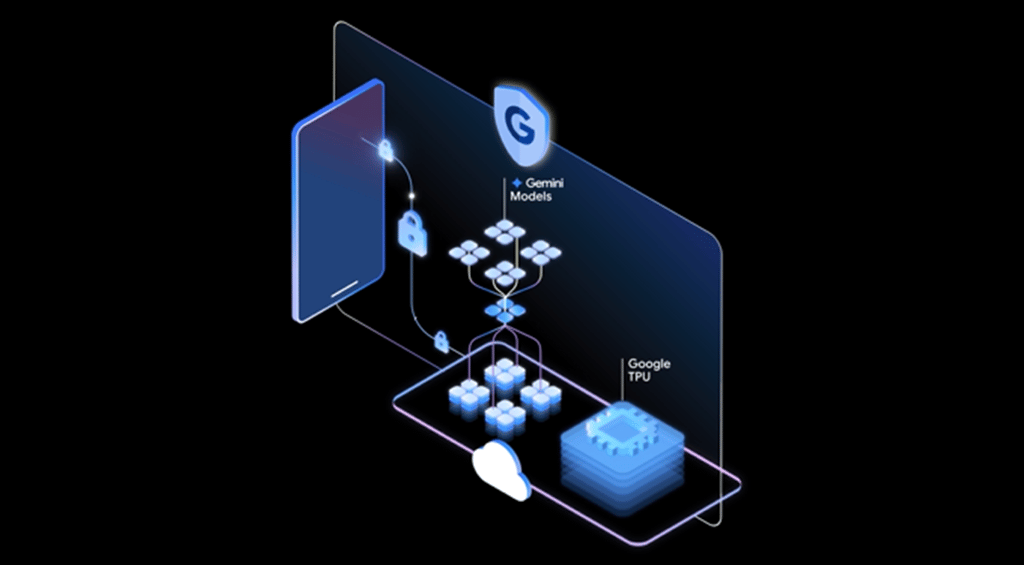The competition for leadership in public cloud computing is a fierce three-way race: Amazon Web Services (AWS) versus Microsoft Azure versus Google Cloud Platform (GCP). Clearly these three top cloud companies hold a commanding lead in the infrastructure-as-a-service (IaaS) and platform-as-a-service (PaaS) markets.
AWS is particularly dominant in the market. AWS’s cloud software holds a market share of 33%, Microsoft Azure has a market share of 21%, and Google Cloud has a market share of 11%, according to Statista.
Table of Contents:
AWS vs. Azure vs. Google Cloud at a Glance
Amazon Web Services
AWS has a huge and growing array of available services as well as the most comprehensive network of worldwide data centers. With a vast tool set that continues to grow exponentially, Amazon’s capabilities are unmatched. AWS has a focus on public cloud.
You can’t go wrong with AWS, due to its rich collection of tools and services and massive scale. At its size, it’s hard for Amazon to have a close relationship with every customer, but there are managed services providers that can offer that type of attentive focus.
Visit AWS
Microsoft Azure
Microsoft Azure is a close competitor to AWS with an exceptionally capable cloud infrastructure. Azure knows you still run a data center, and the Azure platform works hard to interoperate with data centers; hybrid cloud is a true strength. Azure’s deep focus on the hybrid cloud will help you bridge the legacy data center environment with the rapidly scalable and feature-rich Microsoft cloud.
A big reason for Azure’s success: so many enterprises deploy Windows and other Microsoft software. Because Azure is tightly integrated with these other applications, enterprises that use a lot of Microsoft software often find that it makes sense for them to use Azure.
Visit Microsoft Azure
See more: Microsoft: Azure Batch Review
Google Cloud
Google’s technical expertise is profound, and its industry-leading tools in deep learning and artificial intelligence, machine learning, and data analytics are significant advantages. Google Cloud is fully committed and has plowed billions into its cloud efforts. Google has built its cloud on its strength, which is scale and machine learning.
Google developed the Kubernetes standard that AWS and Azure now offer. Google Cloud Platform specializes in high compute offerings like big data, analytics, and machine learning. It also offers considerable scale and load balancing—Google knows data centers and fast response times.
Visit Google Cloud
See more: Google Cloud: Vertex AI Review
Best for Pricing: Google Cloud
Understanding pricing among these three cloud leaders is challenging, and pricing changes; it can change based on the specific arrangement that a customer wrangles from their service rep. Look below for typical pricing engagements with each provider.
AWS Pricing
Amazon’s pricing is particularly inscrutable. While it does offer a cost calculator, the many variables involved make it difficult to get accurate estimates. Gartner advised, “[Amazon’s] granular pricing structure is complex; use of third-party cost management tools is highly recommended.”
Azure Pricing
Microsoft Azure doesn’t make things any simpler. Because of Microsoft’s complicated software licensing options and use of situation-based discounts, its pricing structure can be difficult to understand without outside help and/or considerable experience.
Google Pricing
By contrast, Google uses its pricing as a point of differentiation. It aims to offer “customer-friendly” prices that beat the list prices of the other providers. Gartner noted, “Google uses deep discounts and exceptionally flexible contracts to try to win projects from customers that are currently spending significant sums of money with cloud competitors.”
Best for Cloud Services Portfolio: Google Cloud
When looking into any cloud company, it is important to note what your company needs and wants to get the most out of their cloud technology. While some companies have limited options, AWS, Azure, and Google Cloud offer tools to help with any needs.
AWS Cloud Service Portfolio
Out of the three options, AWS has the least tools in its portfolio. However, AWS’s cloud service portfolio covers many different industries and needs for its customers. With AWS being one of the strongest cloud services, its tools are a great option for businesses. AWS notes unique products from its customers.
Elastic Compute Cloud
Amazon’s flagship compute service is Elastic Compute Cloud, or EC2. Amazon describes EC2 as “a web service that provides secure, resizable compute capacity in the cloud.”
EC2 offers a wide variety of options, including a huge assortment of instances, support for both Windows and Linux, bare metal instances, graphics processing unit (GPU) instances, high-performance computing, auto-scaling, and more. AWS also offers a free tier for EC2 that includes 750 hours per month for up to twelve months.
Container Services
Within the compute category, Amazon’s various container services are increasing in popularity, and it has options that support Docker, Kubernetes, and its own Fargate service that automates server and cluster management when using containers. It also offers a virtual private cloud option known as Lightsail, Batch for batch computing jobs, Elastic Beanstalk for running and scaling web applications as well as a few other services.
See more: Yahoo Selects AWS Public Cloud for Ad Division
Microsoft Azure Cloud Service Portfolio
Microsoft Azure has 18 separate categories for cloud tools to help a business. Between developer and mobile tools, Microsoft Azure’s cloud portfolio offers many options based on a company’s wants and needs.
Virtual Machines
Microsoft Azure’s primary cloud-based compute service is known as Virtual Machines. It boasts support for Linux, Windows Server, SQL Server, Oracle, IBM, and SAP as well as enhanced security, hybrid cloud capabilities, and integrated support for Microsoft software.
Like AWS, Virtual Machines has a large catalog of available instances, including GPU and high-performance computing options, as well as instances optimized for artificial intelligence (AI) and machine learning. It also has a free tier with 750 hours per month of Windows or Linux B1S virtual machines for a year.
Additional Services
Azure’s version of auto-scaling is known as Virtual Machine Scale Sets. Azure has two container services: Azure Container Service is based on Kubernetes, and Container Services uses Docker Hub and Azure Container Registry for management.
It has a Batch service, and Cloud Services for scalable web applications is similar to AWS Elastic Beanstalk. It also has a unique offering called Service Fabric that is specifically designed for applications with microservices architecture.
Google Cloud Service Portfolio
From computing to media, Google Cloud has an extensive amount of tools in its portfolio. With 19 separate categories of cloud software, Google Cloud is likely to be the best portfolio of the three.
Compute Engine
By comparison, Google’s catalog of compute services is somewhat smaller than its competitors. Its primary service is called Compute Engine, which boasts both custom and predefined machine types, per-second billing, Linux and Windows support, automatic discounts, and carbon-neutral infrastructure that uses half the energy of typical data centers. It offers a free tier that includes one f1-micro instance per month for up to 12 months.
Focus on Kubernetes
Like all of the leading cloud vendors, it’s well-set up to offer containers and microservices. Google offers the Kubernetes Engine for organizations interested in deploying containers. And it’s worth noting that Google has been heavily involved in the Kubernetes project, giving it deep expertise in this area.
Best for Compute: AWS
AWS Compute
Elastic Compute Cloud
Amazon’s flagship compute service is Elastic Compute Cloud, or EC2. Amazon describes EC2 as “a web service that provides secure, resizable compute capacity in the cloud.” EC2 offers a wide variety of options, including a huge assortment of instances, support for both Windows and Linux, bare metal instances, GPU instances, high-performance computing, auto-scaling, and more.
Container Services
Within the compute category, Amazon’s various container services are increasing in popularity, and it has options that support Docker, Kubernetes, and its own Fargate service that automates server and cluster management when using containers. It offers a virtual private cloud option known as Lightsail, Batch for batch computing jobs, Elastic Beanstalk for running and scaling web applications.
Microsoft Compute
Virtual Machines
Microsoft Azure’s primary cloud-based compute service is known as Virtual Machines. It boasts support for Linux, Windows Server, SQL Server, Oracle, IBM, and SAP as well as enhanced security, hybrid cloud capabilities, and integrated support for Microsoft software.
Like AWS, it has an extremely large catalog of available instances, including GPU and high-performance computing options, as well as instances optimized for artificial intelligence and machine learning.
Additional Services
Azure’s version of auto-scaling is known as Virtual Machine Scale Sets. Azure has two container services: Azure Container Service is based on Kubernetes, and Container Services uses Docker Hub and Azure Container Registry for management.
It has a Batch service, and Cloud Services for scalable web applications is similar to AWS Elastic Beanstalk. It has a unique offering called Service Fabric that is specifically designed for applications with microservices architecture.
Google Compute
Compute Engine
By comparison, Google’s catalog of compute services is somewhat smaller than its competitors. Its primary service is called Compute Engine, which boasts both custom and predefined machine types, per-second billing, Linux and Windows support, automatic discounts, and carbon-neutral infrastructure that uses half the energy of typical data centers.
Focus on Kubernetes
Like all of the leading cloud vendors, it’s well-set up to offer containers and microservices. Google offers the Kubernetes Engine for organizations interested in deploying containers. And it’s worth noting that Google has been heavily involved in the Kubernetes project, giving it deep expertise in this area.
Best for Storage: Microsoft Azure
AWS Storage
SSS to EFS
AWS’s storage services include its Simple Storage Service (S3) for object storage, Elastic Block Storage (EBS) for persistent block storage (for use with EC2), and Elastic File System (EFS) for file storage.
Some of its more innovative storage products include the Storage Gateway, which enables a hybrid storage environment, and Snowball, which is a physical hardware device that organizations can use to transfer petabytes of data in situations where internet transfer isn’t practical.
Database and Archiving
Amazon has a SQL-compatible database called Aurora, Relational Database Service (RDS), DynamoDB NoSQL database, ElastiCache in-memory data store, Redshift data warehouse, Neptune graph database, and a Database Migration Service.
Amazon offers Glacier, which is designed for long-term archival storage at low rates. In addition, its Storage Gateway can be used to easily set up backup and archive processes.
Azure Storage
Storage Services
Microsoft Azure’s basic storage services include Blob Storage for REST-based object storage of unstructured data, Queue Storage for large-volume workloads, File Storage, and Disk Storage. It also has a Data Lake Store, which is useful for big data applications.
Extensive Database
Azure’s database options are particularly extensive. It has three SQL-based options: SQL Database, Database for MySQL, and Database for PostgreSQL. It also has a Data Warehouse service as well as Cosmos DB and Table Storage for NoSQL.
Redis Cache is its in-memory service, and the Server Stretch Database is its hybrid storage service, designed specifically for organizations that use Microsoft SQL Server in their own data centers.
Unlike AWS, Microsoft does offer an actual Backup service as well as Site Recovery service and Archive Storage.
Google Storage
Unified Storage and More
GCP has a growing menu of storage services available. Cloud Storage is its unified object storage service, and it has a Persistent Disk option. In addition, it offers a Transfer Appliance, similar to AWS Snowball, and has online transfer services.
SQL and NoSQL
When it comes to databases, GCP has the SQL-based Cloud SQL and a relational database called Cloud Spanner that is designed for mission-critical workloads. It has two NoSQL options: Cloud Bigtable and Cloud Datastore. It does not have backup and archive services.
Best for Networking: Microsoft Azure
Cloud networking is an IT infrastructure where most or all of a company’s network abilities and data are in a public or private cloud platform, managed by the provider or company employees that are available on demand.
AWS, Microsoft Azure, and Google Cloud offer different network capabilities for their customers. While Microsoft Azure is the top provider in networking, AWS and Google Cloud offer valuable tools.
AWS Networking
AWS networking has a broad and deep set of networking and content delivery services in the world with AWS. A company can run applications with reliability, security, and performance in the cloud.
AWS offers a simple networking process to improve a company’s infrastructure with application networking. They offer increased security for their edge networking platform and offer customizable options for the network.
Microsoft Azure Networking
Microsoft Azure networking offers the ability to connect and deliver hybrid and cloud-native applications. From connecting to virtual machines and VPN connections, Azuree is the top cloud provider within networking.
Azure is customizable from security to traffic ensuring the network from inbound to outbound connections, native firewalls, network firewalls, and delivery of 5G networks give the company exactly what they need. Connecting to customers, traffic, and other sites are all connected within a unified portal, something the other cloud tools do not provide.
Google Cloud Networking
Google Cloud offers a broad portfolio of networking services that leverages automation, AI, and programs for companies to enable businesses to connect, scale, secure, modernize, and optimize their infrastructure.
There are many products in Google’s portfolio for networking that offer more uptime, fewer disruptions, and virtual private cloud (VPC) networks. Using Google Cloud allows businesses to access Google APIs and services to keep track of a company’s network.
Best for Reliability: AWS
When it comes to cloud computing and storage, a company needs a reliable business to keep their business running. While AWS is ranked as the most reliable, there are other traits from Azure or Google cloud that fits their business model.
AWS Reliability
- Automatically Recover From Downtime: AWS key performance indicators (KPIs) should be a measure of business value, allowing for automatic notification and tracking of vulnerabilities and for automated recovery processes that work around or repair the failure.
- Test Recovery Procedures: In the cloud, a company can test how their workload fails, and a company can validate recovery procedures. Using AWS automation can simulate different vulnerabilities or to recreate problems that have caused failures before.
- Scale to Increase Aggregate Workload Availability: A company can replace one large resource with multiple small resources to reduce the impact of a vulnerability on the overall workload.
- Manage Change in Automation: AWS cloud changes to a company’s infrastructure are made using automation. The changes cause changes to the automation, which then can be tracked and reviewed.
Microsoft Azure Reliability
- Network Reliability Through Azure Software: Microsoft network connects more than 60 Azure regions, 200 Azure data centers, and over 175,000 miles of terrestrial and subsea fiber worldwide connecting to the internet at global edge points of presence.
- Safe Deployment With AIOps: AI and machine learning are used to help engineers monitor the deployment process at scale, detect issues early, and make rollout or rollback decisions based on impact scope and severity.
- Resiliency Threat Modeling for Large Distributed Systems: Azure engineering teams use multiple tools to understand what went wrong, how it went wrong, and the customer impact of outages.
- Low- and No-Impact Maintenance: The low- and no-impact update technologies include hot patching, memory-preserving maintenance, and live migration to maintain its infrastructure with little or no customer impact or downtime.
Google Cloud Reliability
- Google Cloud Outages: Google Cloud is transparent about service availability and providing a near real-time report on current service status across the continents.
- Robust Security: Their security stance is part of its GCP offering to ensure companies are kept safe from vulnerabilities and that networks remain secure and encrypted.
- Automation to Avoid User Error: The cloud provides high levels of automation and capabilities for ML elements that can save an organization time and reduce the need for human input.
- Uses Hybrid and Multicloud Setups: Google Cloud embraces the need for collaboration, allowing users to run apps and access data across any cloud environment.
Best for Availability: AWS
Depending on where your international operations are located and what localized regulations you need to follow, one of these top clouds may be optimal for your business model:
- AWS Availability Zones: North America (24), South America (three), Europe (24), Middle East (six), Africa (three), Asia Pacific (32), and Australia (six).
- Azure Availability Zones: Brazil (three), Canada (three), Chile, Mexico, United States (18), Azure Government (three), Asia Pacific (six), and Australia (three).
- Google Availability Zones: Asia, Australia, Europe, North America, and South America.
Availability zones are growing as cloud services have grown. From North America to Australia, these companies are growing everyday.
Bottom Line: AWS vs. Azure vs. Google Cloud
Certain types of companies will be more attracted to certain cloud vendors. So if your firm runs Windows and a lot of Microsoft software, you’ll probably want to investigate Azure. If you are a small, web-based startup looking to scale quickly, you might want to take a good look at Google Cloud Platform. And if you are looking for the provider with the broadest catalog of services and worldwide reach, AWS will probably be right for you.
See more: 100 Top Artificial Intelligence (AI) Companies







